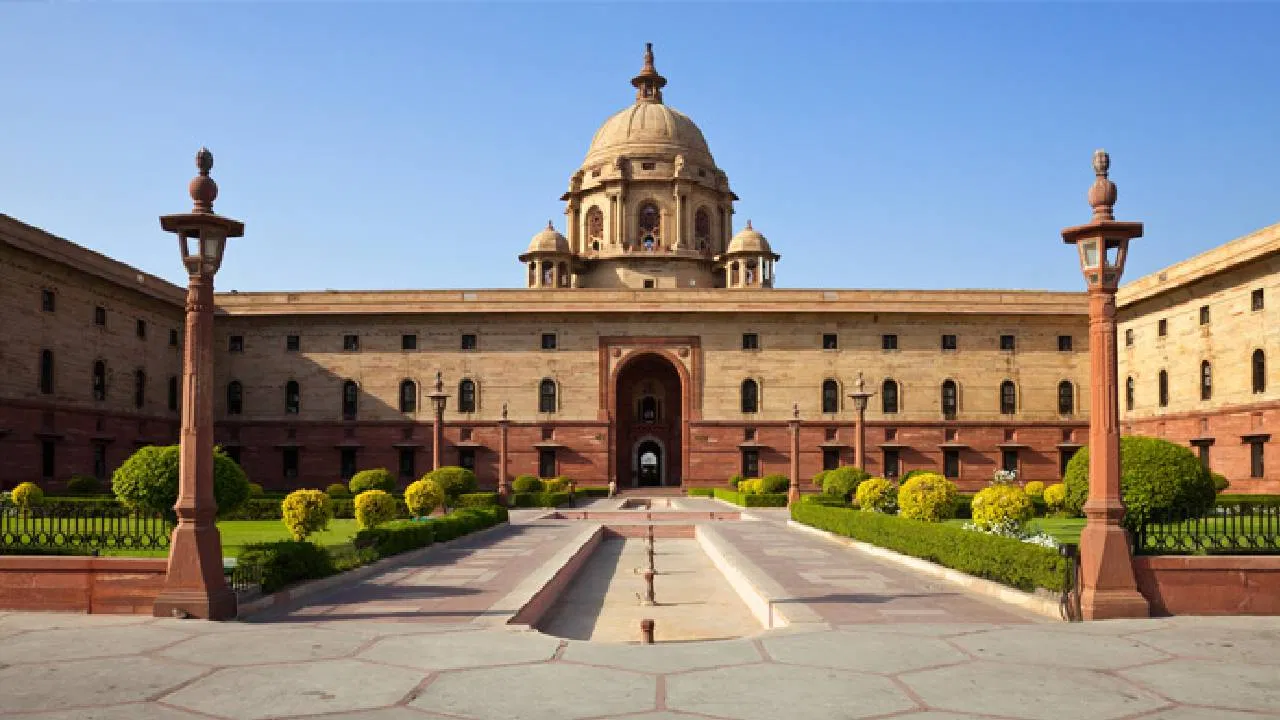3 New Penal Codes, Nightmare For Criminals?
On December 25, President Draupadi Murmu approved the three new criminal code bills that Parliament had approved the previous week.
The Indian Criminal Procedure Code, the Indian Evidence Act of 1872, The Bharatiya Nyaya Sanhita, The Bharatiya Nagarik Suraksha Sanhita, and The Bharatiya Sakshya Act will be superseded by these new laws.
In response to the Parliamentary debate, Union Home Minister Amit Shah stated that the new bills prioritize enforcing justice over punishing.
Process Of Enactment Of Law (3 New Penal Codes)
. The discussion started in 2019 about the British Criminal Laws.
. In March 2020 Govt. created a committee named Centre Constituted Panel to suggest reforms in criminal laws.
. Fab 2022, the government invited public suggestions as these laws are going to affect the public so they needed to take the public opinion about how the changes in laws would look like & a Report to Rajya Sabha.
. In August 2023, the Union Minister tabled these 3 bills.
The three bills define different offenses and outline their associated penalties to reform the criminal justice system. It does away with sedition as a crime and adds a new section called “offenses against the state” along with a clear definition of terrorism.
In the new version of the sedition law, the Bharatiya Nyaya Sanhita lists offenses like secession acts, armed rebellion, subversive activities, separatist activities, or endangering sovereignty or unity.
Instead of being registered under the Indian Penal Code, all new First Information Reports (FIR) will be filed under the Bharatiya Nyaya Sanhita.
The INDIA bloc opposition parties have been vehemently against the bills and have discussed taking legal action once the bills are ratified by the president during a meeting of floor leaders.
Former Finance Minister P Chidambaram, a senior advocate in the Supreme Court, claimed in a lengthy post on X that many provisions of the “new Indian Penal Code are unconstitutional and violate Articles 19 and 21 of the Constitution” and that the code has become more “draconian.”
Just as the Christmas Day celebrations are coming to an end, we hear the news that the President has given her assent to the three criminal law Bills
The new Indian Penal Code has become more draconian. If you realize that the Code is more often than not used against the poor,…
— P. Chidambaram (@PChidambaram_IN) December 25, 2023
“Instead of strengthening ‘due process of law’, the new Criminal Procedure Code contains many provisions that severely restrict ‘freedom’ and ‘personal liberty’. The new provisions for arrest and police custody (that can extend custody up to 60 days or 90 days) will only lead to police excesses and custodial persecution,” Mr Chidambaram said.
His party colleague and Lok Sabha Manish Tewari added that these laws “will have to reviewed lock stock and barrel as the government has empowered 17379 Police Stations across the country and has disempowered 140 crore people concurrently”.
In the Lok Sabha Meeting, Minister Of Home Affairs – Amit Shah Stated
“This is not the rule of the British. This is not the rule of Congress. This is the rule of BJP and Narendra Modi… No argument of saving terrorism will work here,” he said.
“For the first time, laws are being made according to the spirit of our Constitution under the leadership of Modi ji. I am proud to have changed these three laws after 150 years,” he said.
1. The Bharatiya Nyaya Sanhita (BNS) (3 New Penal Codes)
Bharatiya Nyaya Sanhita Bill 2023, which will replace the Indian Penal Code, will have 356 sections instead of the earlier 511 sections, 175 sections have been changed, 8 new sections have been added and 22 sections have been repealed
Highlights of the Bill
The Bharatiya Nyaya Sanhita (BNS) retains most offenses from the IPC. It adds community service as a form of punishment.
Sedition is no longer an offense. Instead, there is a new offense for acts endangering the sovereignty, unity, and integrity of India.
The BNS adds terrorism as an offense. It is defined as an act that intends to threaten the unity, integrity, and security of the country, intimidate the general public or disturb public order.
Organized crime has been added as an offense. It includes crimes such as kidnapping, extortion, and cyber-crime committed on behalf of a crime syndicate. Petty organized crime is also an offense now.
Murder by a group of five or more persons on grounds of certain identity markers such as caste, language or personal belief will be an offence with a penalty of seven years to life imprisonment or death.
Key Issues and Analysis
The IPC protects from prosecution to a person of unsound mind. The BNS changes this to a person with mental illness. The definition of mental illness excludes mental retardation and includes abuse of alcohol and drugs. While individuals suffering from mental retardation may be prosecuted, those who are voluntarily intoxicated may be exonerated.
Click Here to know more.

2. The Bharatiya Nagarik Suraksha Sanhita, 2023 (BNSS) (3 New Penal Codes)
Bhartiya Nagarik Suraksha Sanhita Bill, which will replace CrPC, now has 533 sections, 160 sections of old law have been changed, 9 new sections have been added and 9 sections have been repealed.
Highlights of the Bill
The Bharatiya Nagarik Suraksha Sanhita, 2023 (BNSS) seeks to replace the Criminal Procedure Code, 1973 (CrPC). The CrPC provides for the procedure for arrest, prosecution, and bail.
BNSS mandates forensic investigation for offenses punishable with seven years of imprisonment or more. Forensic experts will visit crime scenes to collect forensic evidence and record the process.
All trials, inquiries, and proceedings may be held in electronic mode. Production of electronic communication devices, likely to contain digital evidence, will be allowed for investigation, inquiry, or trial.
If a proclaimed offender has absconded to evade trial and there is no immediate prospect of arresting him, the trial can be conducted and judgment pronounced in his absence.
Along with specimen signatures or handwriting, finger impressions and voice samples may be collected for investigation or proceedings. Samples may be taken from a person who has not been arrested.
Key Issues and Analysis
The BNSS allows up to 15 days of police custody, which can be authorized in parts during the initial 40 or 60 days of the 60 or 90 days period of judicial custody. This may lead to denial of bail for the entire period if the police have not exhausted the 15 days of custody.
Click Here to know more.

3. The Bharatiya Sakshya Bill, 2023 (BSB) (3 New Penal Codes)
Bharatiya Sakshya Bill, which will replace the Evidence Act, will now have 170 sections instead of the earlier 167, 23 sections have been changed, 1 new section has been added and 5 have been repealed
Highlights of the Bill
The Bharatiya Sakshya Bill, 2023 (BSB) replaces the Indian Evidence Act, 1872 (IEA). It retains most provisions of the IEA including those on confessions, relevancy of facts, and burden of proof.
The IEA provides two kinds of evidence – documentary and oral. Documentary evidence includes primary (original documents) and secondary (that prove the contents of the original). The BSB retains the distinction. It includes electronic records in the definition of documents.
Under the IEA, electronic records are categorized as secondary evidence. The BSB classifies electronic records as primary evidence. It expands such records to include information stored in semiconductor memory or any communication devices (smartphones, laptops).
Under the IEA, secondary evidence may be required under various conditions, such as when the original is in the possession of the person against whom the document is sought to be proved or has been destroyed. The BSB adds that secondary evidence may be required if the genuineness of the document itself is in question.
Key Issues and Analysis
The Supreme Court has recognized that electronic records may be tampered with. While the BSB provides for the admissibility of such records, there are no safeguards to prevent the tampering and contamination of such records during the investigation process.
Click Here to know more.


